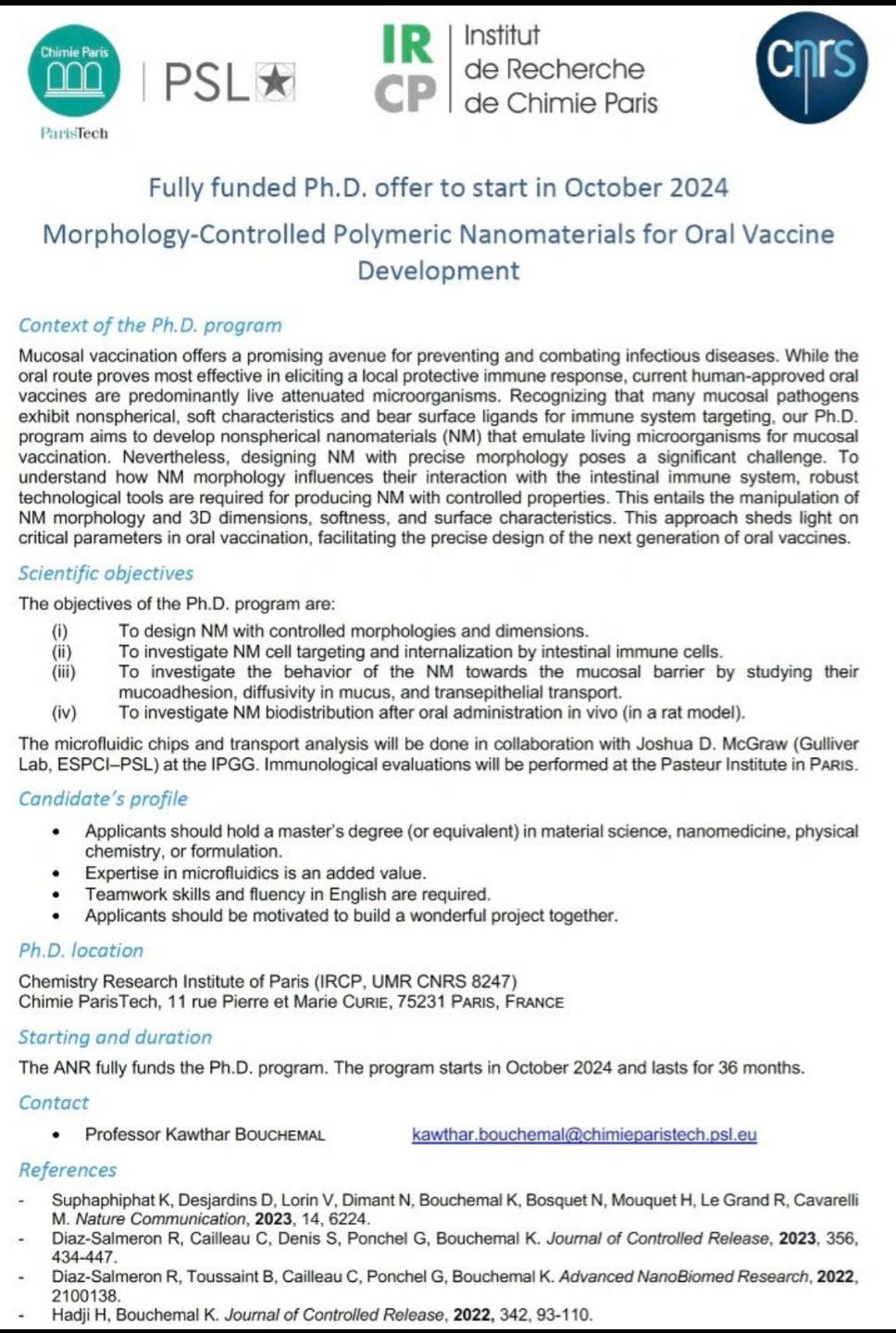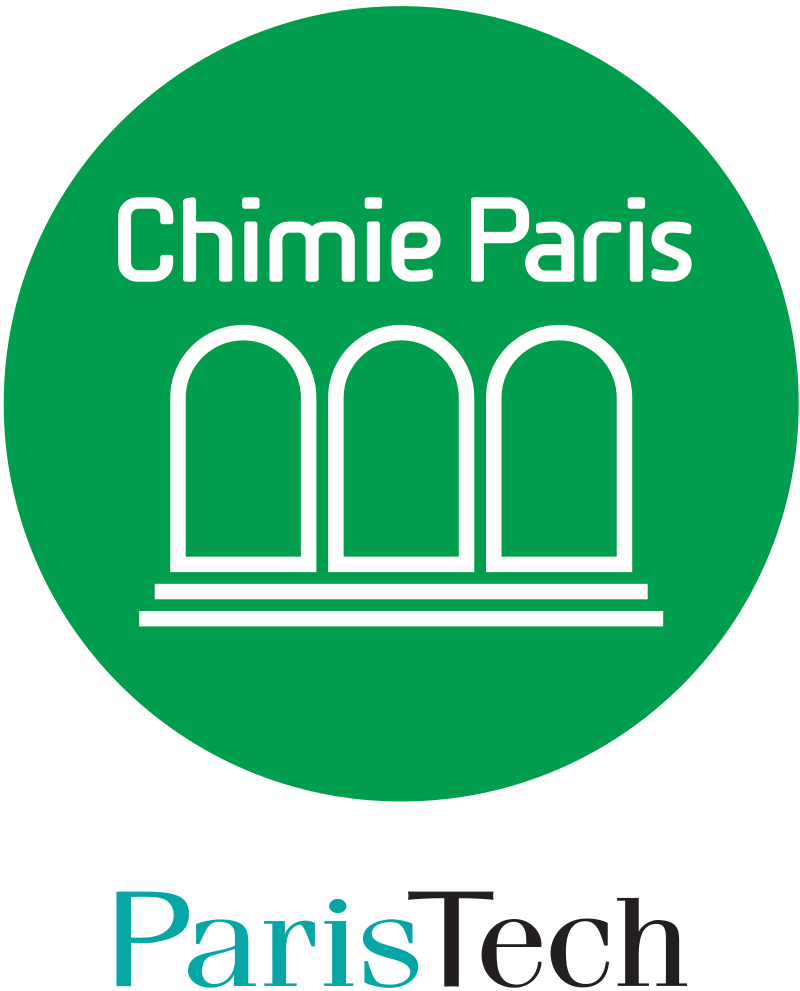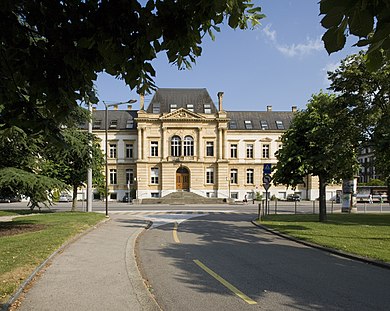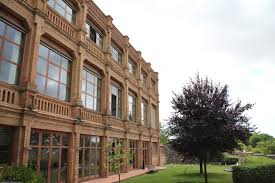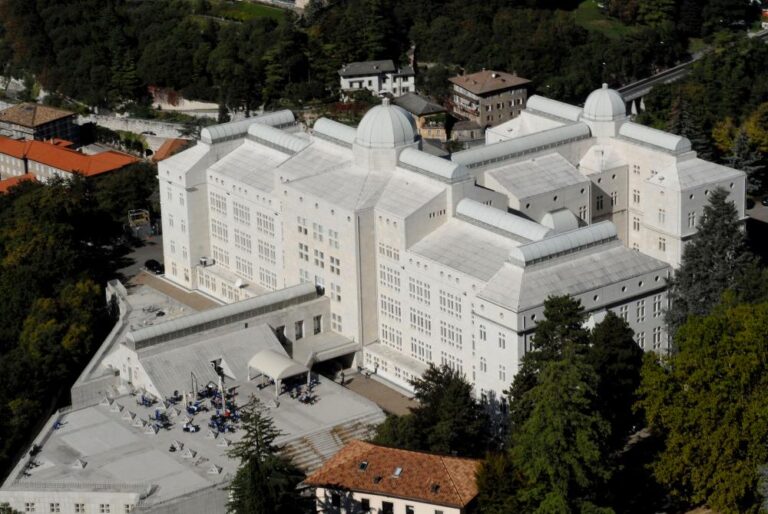Chemistry Research Institute of Paris (IRCP), ParisTech Chemistry – PSL University
Morphology-Controlled Polymeric Nanomaterials for Oral Vaccine Development
Context of the Ph.D. program
Mucosal vaccination offers a promising avenue for preventing and combating infectious diseases. While the oral route proves most effective in eliciting a local protective immune response, current human-approved oral vaccines are predominantly live attenuated microorganisms. Recognizing that many mucosal pathogens exhibit nonspherical, soft characteristics and bear surface ligands for immune system targeting, our Ph.D. program aims to develop nonspherical nanomaterials (NM) that emulate living microorganisms for mucosal vaccination. Nevertheless, designing NM with precise morphology poses a significant challenge. To understand how NM morphology influences their interaction with the intestinal immune system, robust technological tools are required for producing NM with controlled properties. This entails the manipulation of NM morphology and 3D dimensions, softness, and surface characteristics. This approach sheds light on critical parameters in oral vaccination, facilitating the precise design of the next generation of oral vaccines.
Scientific objectives
The objectives of the Ph.D. program are:
- To design NM with controlled morphologies and dimensions.
- To investigate NM cell targeting and internalization by intestinal immune cells.
- To investigate the behavior of the NM towards the mucosal barrier by studying their mucoadhesion, diffusivity in mucus, and transepithelial transport.
- To investigate NM biodistribution after oral administration in vivo (in a rat model).
The microfluidic chips and transport analysis will be done in collaboration with Joshua D. McGraw (Gulliver Lab, ESPCI-PSL) at the IPGG. Immunological evaluations will be performed at the Pasteur Institute in PARIS.
Candidate’s profile
- Applicants should hold a master’s degree (or equivalent) in material science, nanomedicine, physical chemistry, or formulation.
- Expertise in microfluidics is an added value.
- Teamwork skills and fluency in English are required.
- Applicants should be motivated to build a wonderful project together.
Ph.D. location
Chemistry Research Institute of Paris (IRCP, UMR CNRS 8247)
Chimie ParisTech, 11 rue Pierre et Marie CURIE, 75231 PARIS, FRANCE
Starting and duration
The ANR fully funds the Ph.D. program. The program starts in October 2024 and lasts for 36 months.
Contact
- Professor Kawthar BOUCHEMAL kawthar.bouchemal@chimieparistech.psl.eu
References
- Suphaphiphat K, Desjardins D, Lorin V, Dimant N, Bouchemal K, Bosquet N, Mouquet H, Le Grand R, Cavarelli M. Nature Communication, 2023, 14, 6224.
- Diaz-Salmeron R, Cailleau C, Denis S, Ponchel G, Bouchemal K. Journal of Controlled Release, 2023, 356, 434-447.
- Diaz-Salmeron R, Toussaint B, Cailleau C, Ponchel G, Bouchemal K. Advanced NanoBiomed Research, 2022, 2100138.
- Hadji H, Bouchemal K. Journal of Controlled Release, 2022, 342, 93-110.
*Following is the full advertisement image provided.
